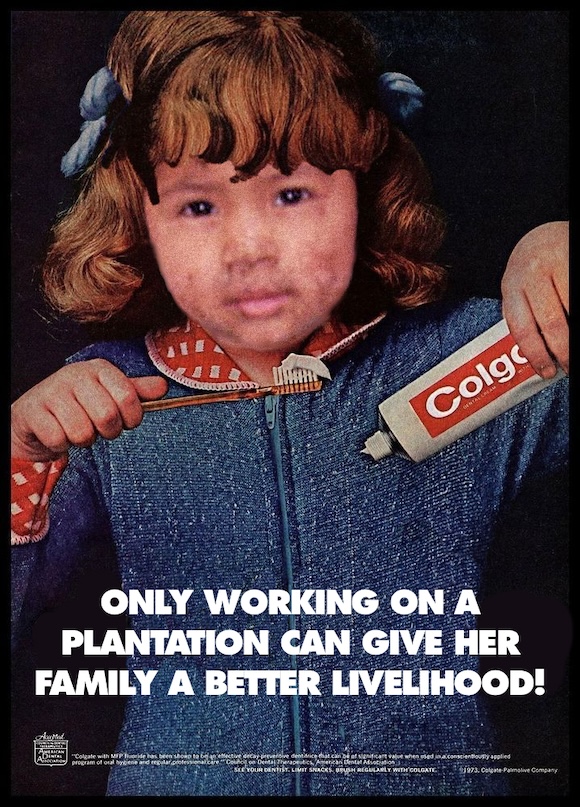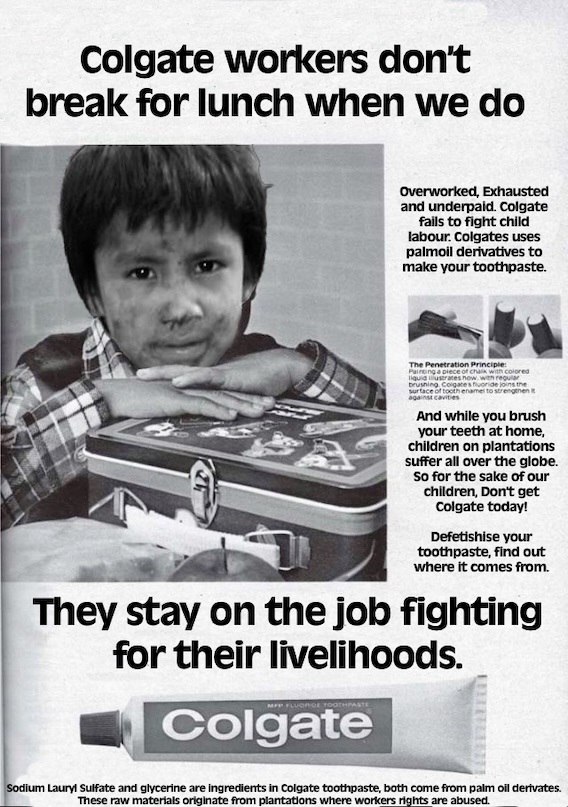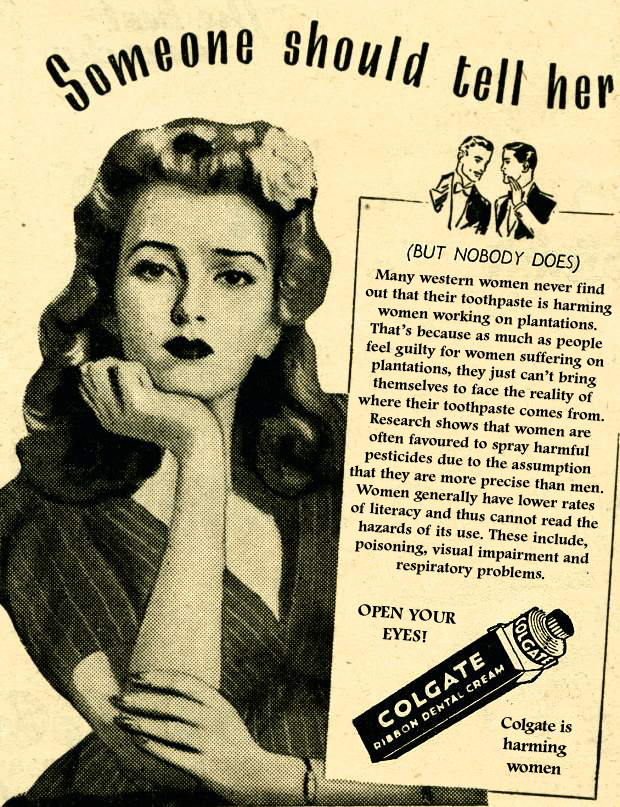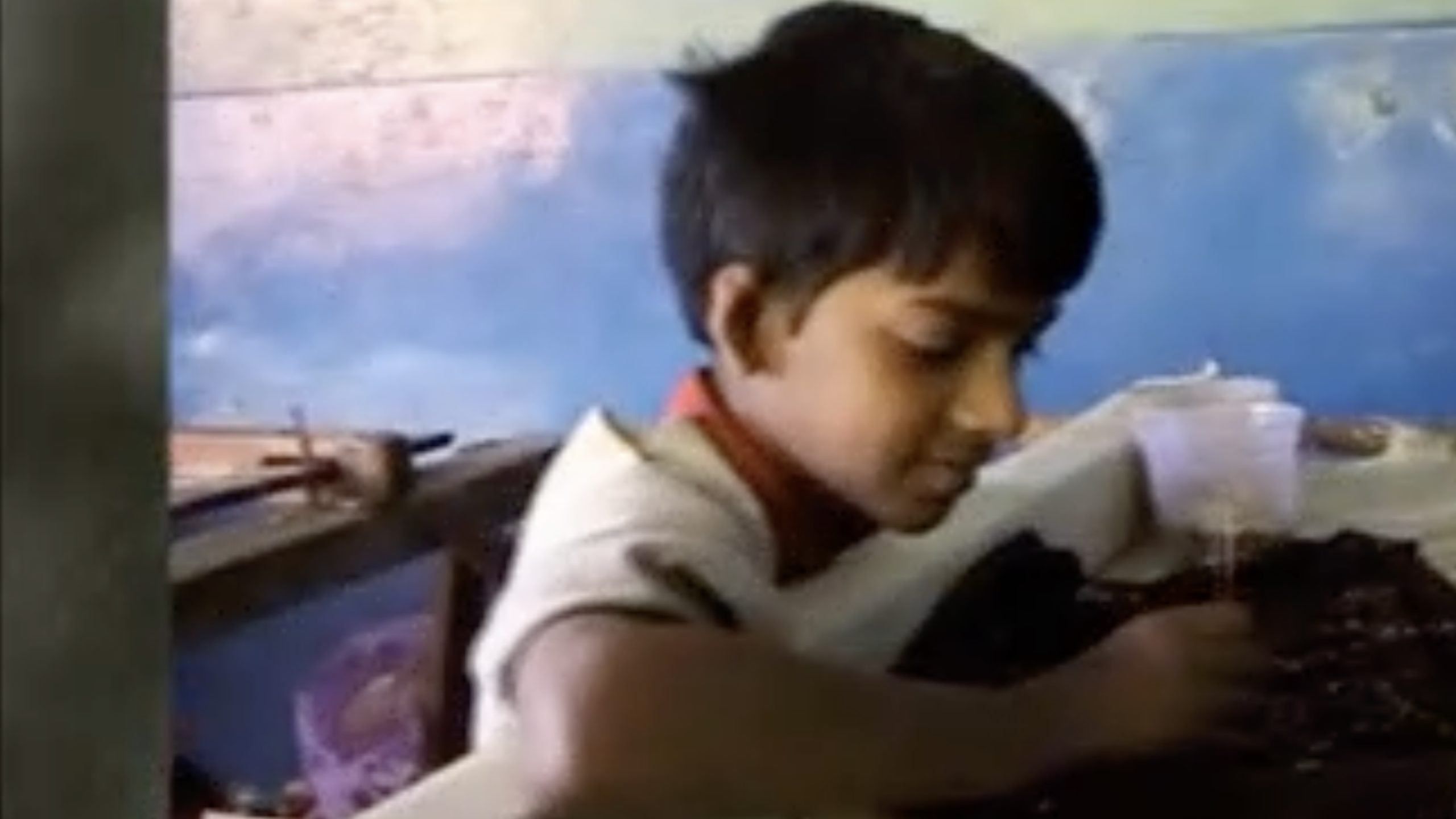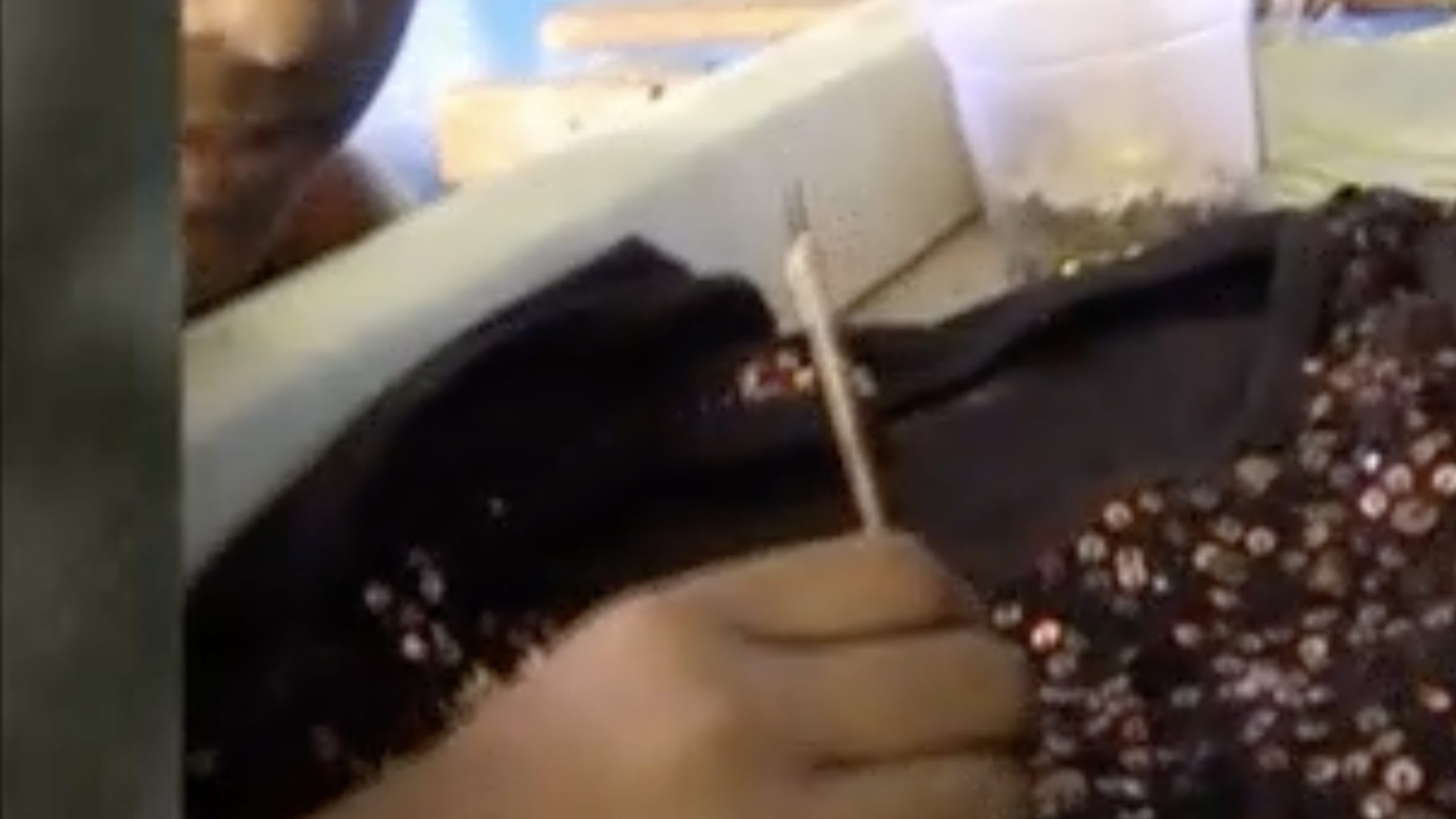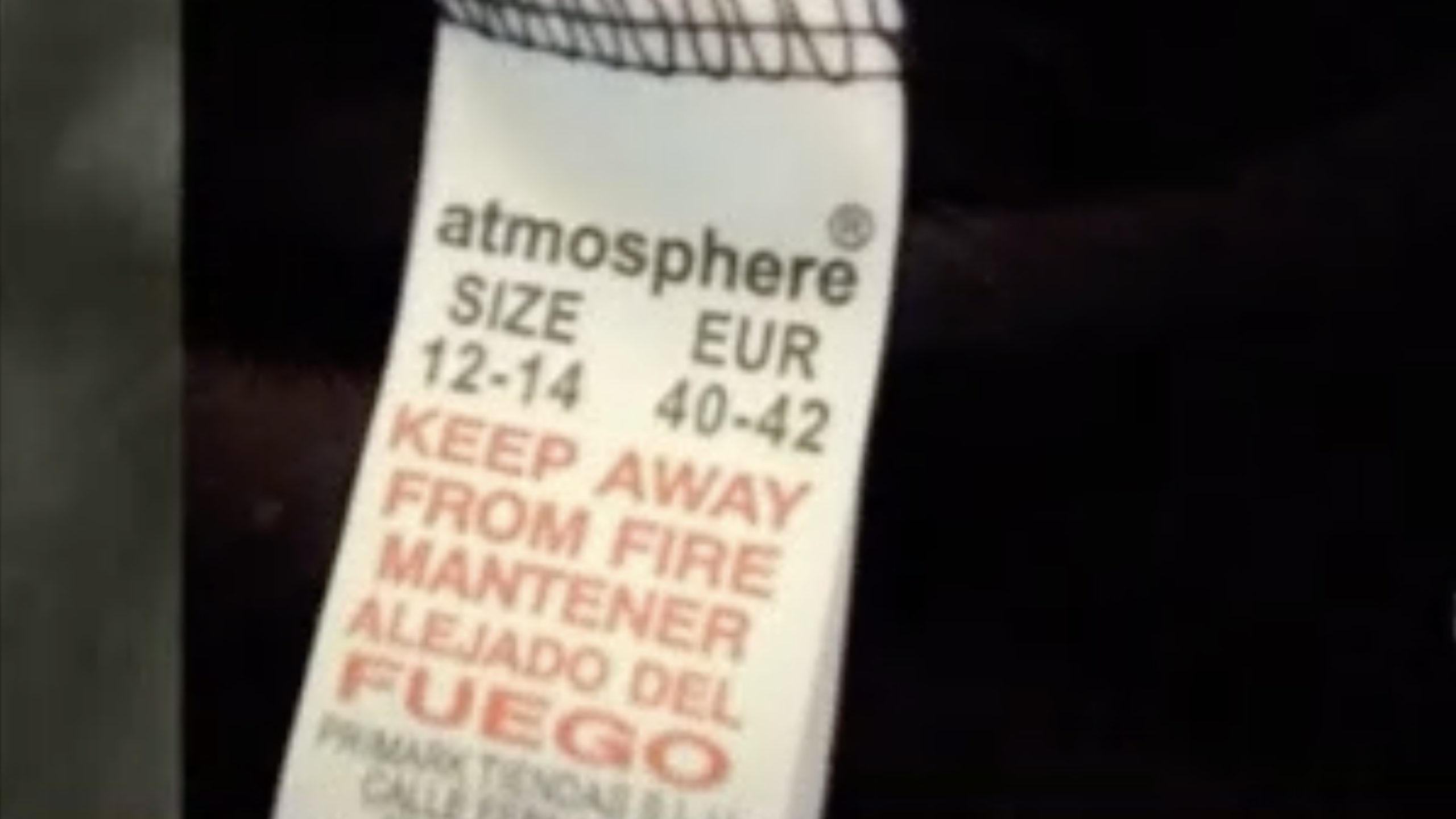
followthethings.com
Health & Beauty
“Bright Smiles, Dirty Secrets“
Undergraduate coursework designed & written by Talisker Alcobia Cornford.
Originally published on the followthethings.com blog here.
Talisker is taking ‘the’Geographies of Material Culture’, the Exeter University module behind our website. At the start of the module, CEO Ian asks everyone to choose an everyday commodity, zero in on one or more of its ingredients, search online for human and other stories of its making, and then experiment with forms of cultural activism to make these relations public. It’s often more interesting to choose something you have absolutely no idea about – he says – no preconceptions about, like something whose ingredients are chemicals, with names you don’t recognise, listed on the packaging in tiny writing that’s hard to read, especially when we use them bleary-eyed, first thing in the morning. Toothpaste is an excellent example. Whose lives are in these kinds of commodities? Talisker culture jams some Colgate ads to add some missing supply chain information to them. But why isn’t her response to simply shop for a different brand? Why’s she making these spoof ads? Who does she want to see them? Where would she like them to be displayed?
Page reference: Talisker Alcobia Cornford (2020) Bright Smiles, Dirty Secrets. followthethings.com/bright-smiles-dirty-secrets.shtml (last accessed <insert date here>)
Estimated reading time: 8 minutes.
Continue reading Bright Smiles, Dirty Secrets ![]()

